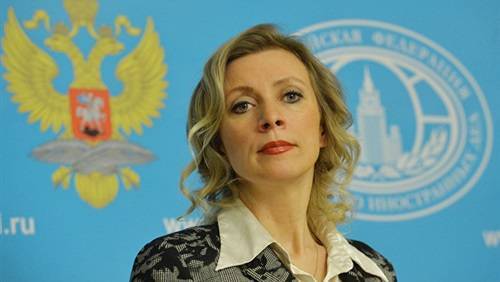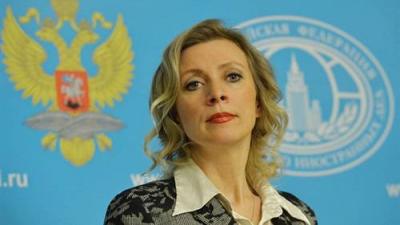Maria Zakharova, spokesperson for the Russian Foreign Ministry, stated that the German response regarding the situation with Alexei Navalny was meaningless.
Zakharova clarified on the "Russia 1" television channel that Russia received a response from Germany regarding the situation with Navalny, noting that it contained nothing of substance. She explained, "I saw the headlines, and our experts involved on this side were called to respond; of course, we received an answer from the German side, but the problem is that, as always, it is meaningless."
The previous day, foreign news agencies circulated a statement from an official representative of the German Ministry of Justice indicating that Berlin had addressed requests from Russia for legal assistance in the Navalny case, emphasizing that responses were based on objective grounds. The German news agency (dpa) noted that medical reports were not disclosed because personal health data is specifically protected under German law.
The story of the 44-year-old Navalny dates back to August 20, when he fell seriously ill during a flight returning from Siberia to Moscow as part of an election campaign. He was hospitalized in Omsk for 48 hours before being transferred to Berlin in a coma after pressure from his associates. Navalny was discharged from the hospital in early September, and three European laboratories concluded that he had been poisoned with Novichok, a substance developed during the Soviet era for military purposes. This conclusion was confirmed by the Organization for the Prohibition of Chemical Weapons, despite repeated denials from Moscow.
Since Navalny announced his intention to return to the country on Wednesday, the Russian prison service warned him that it would be "obliged" to arrest him for violating the terms of a suspended prison sentence issued in 2014. However, Navalny considered this a scare tactic and instead called on his supporters to greet him at Vnukovo Airport in Moscow, where his flight is scheduled to land at 19:20 (16:20 UTC).
Navalny asserts that Russian security services orchestrated an assassination attempt on him on direct orders from Vladimir Putin. Moscow categorically denies the poisoning, despite European laboratory results proving he was poisoned, denouncing the narrative as a Western conspiracy and questioning Navalny's health habits.
It is worth noting that Russia refuses to open a criminal investigation into what happened to Navalny, claiming that Germany is withholding data from Russia. However, Germany announced on Saturday that it had sent most elements of the judicial investigation concerning the alleged poisoning of Navalny to Moscow, which includes interrogation transcripts of Navalny by German investigators as well as blood and tissue samples and pieces of clothing.




